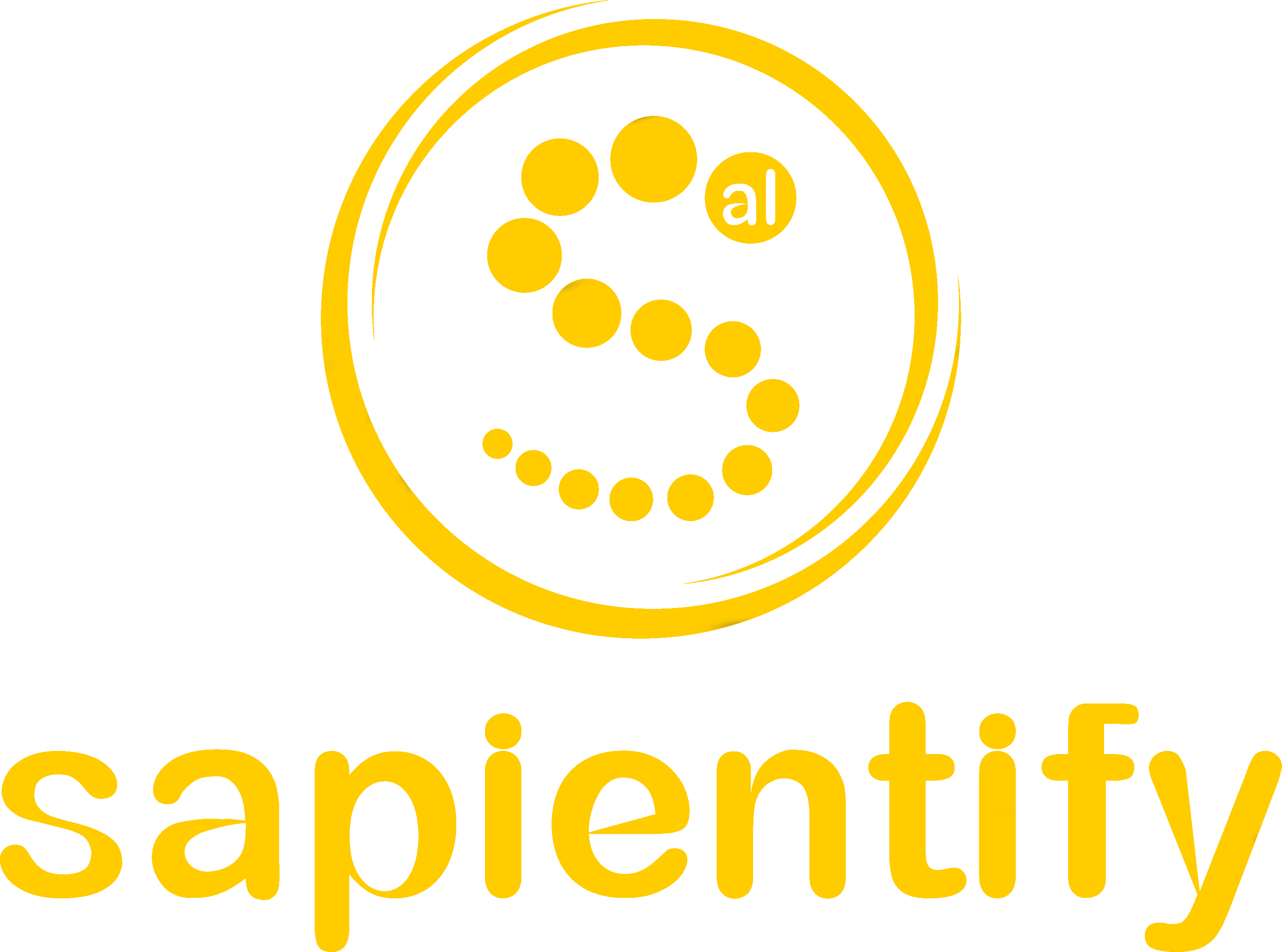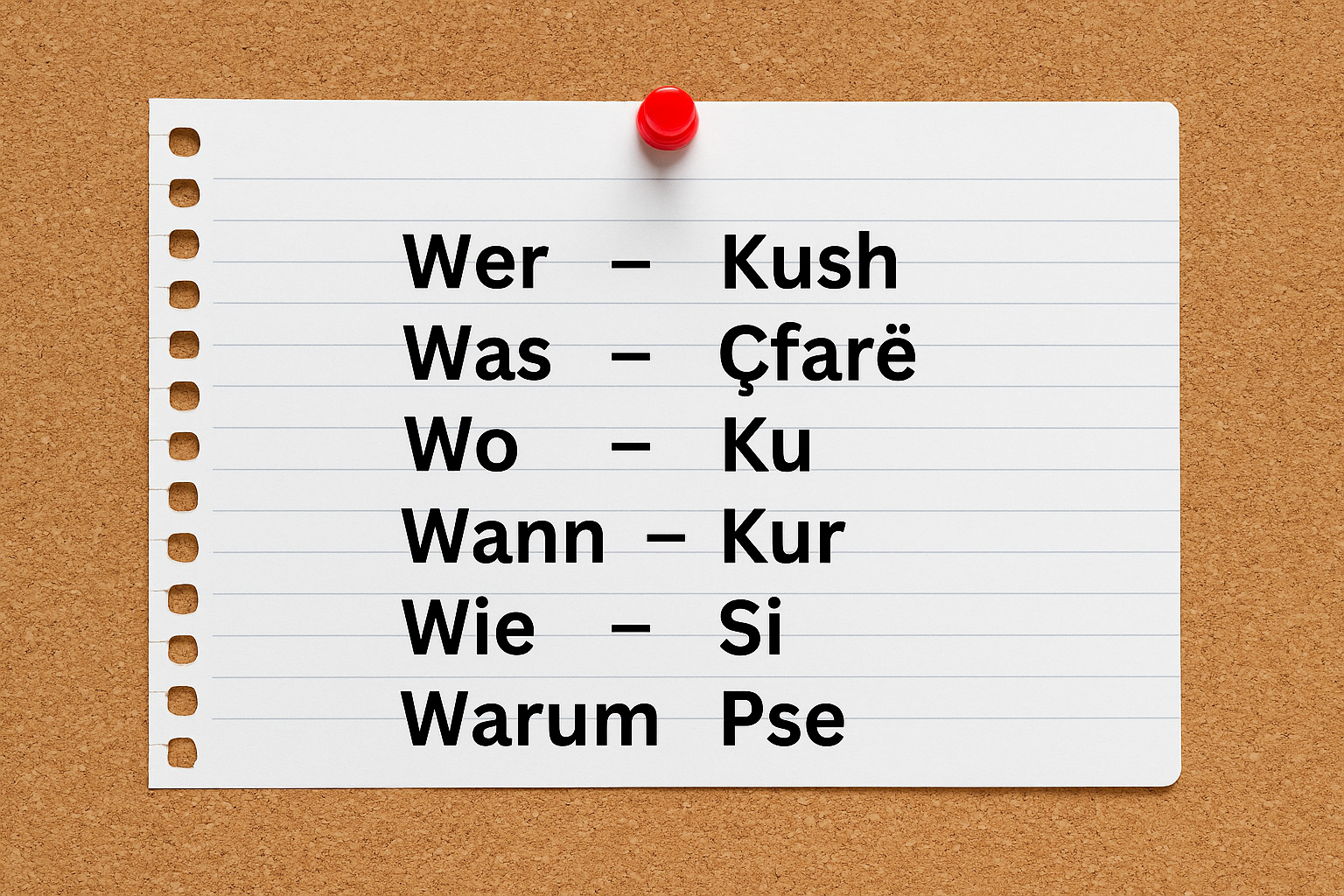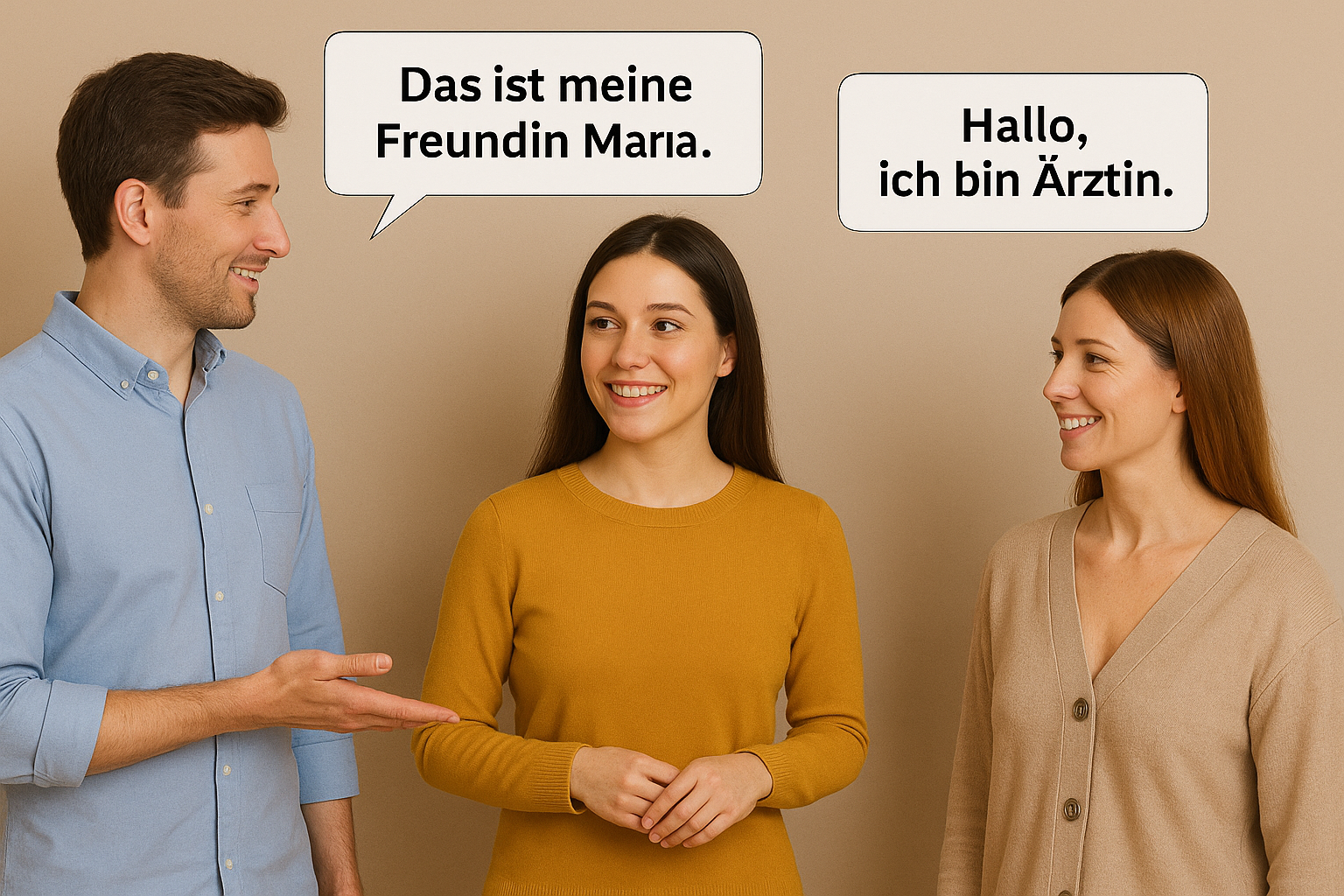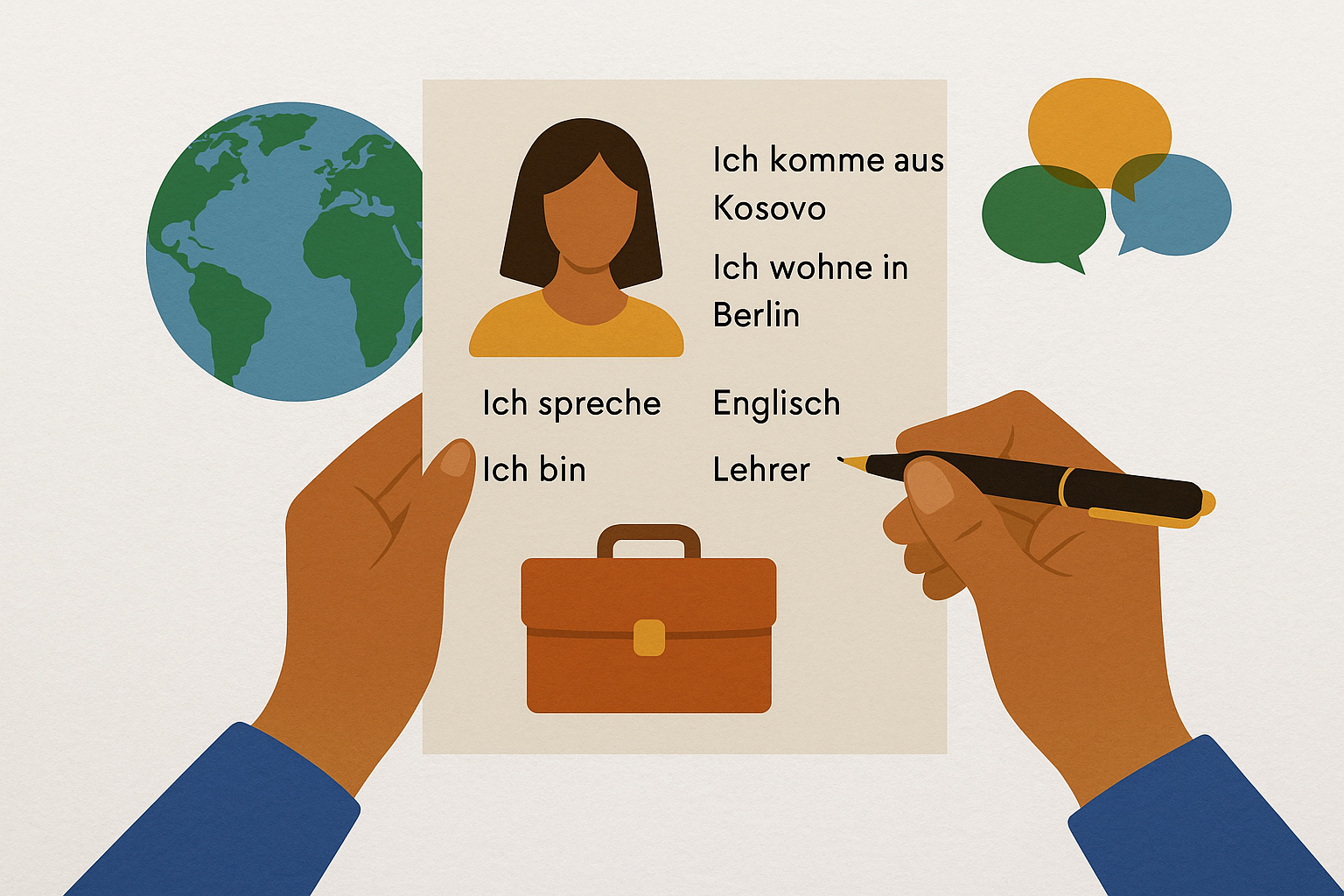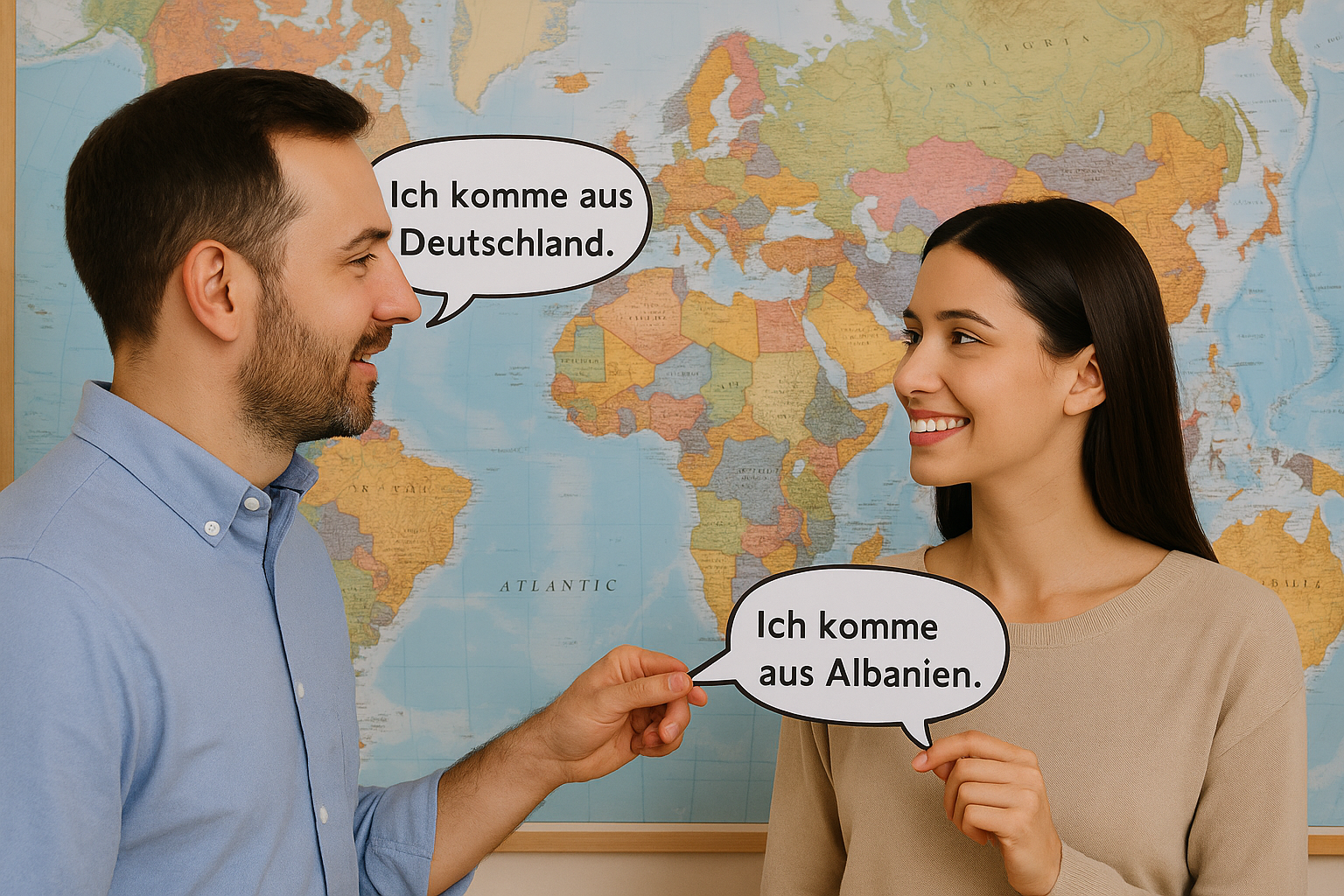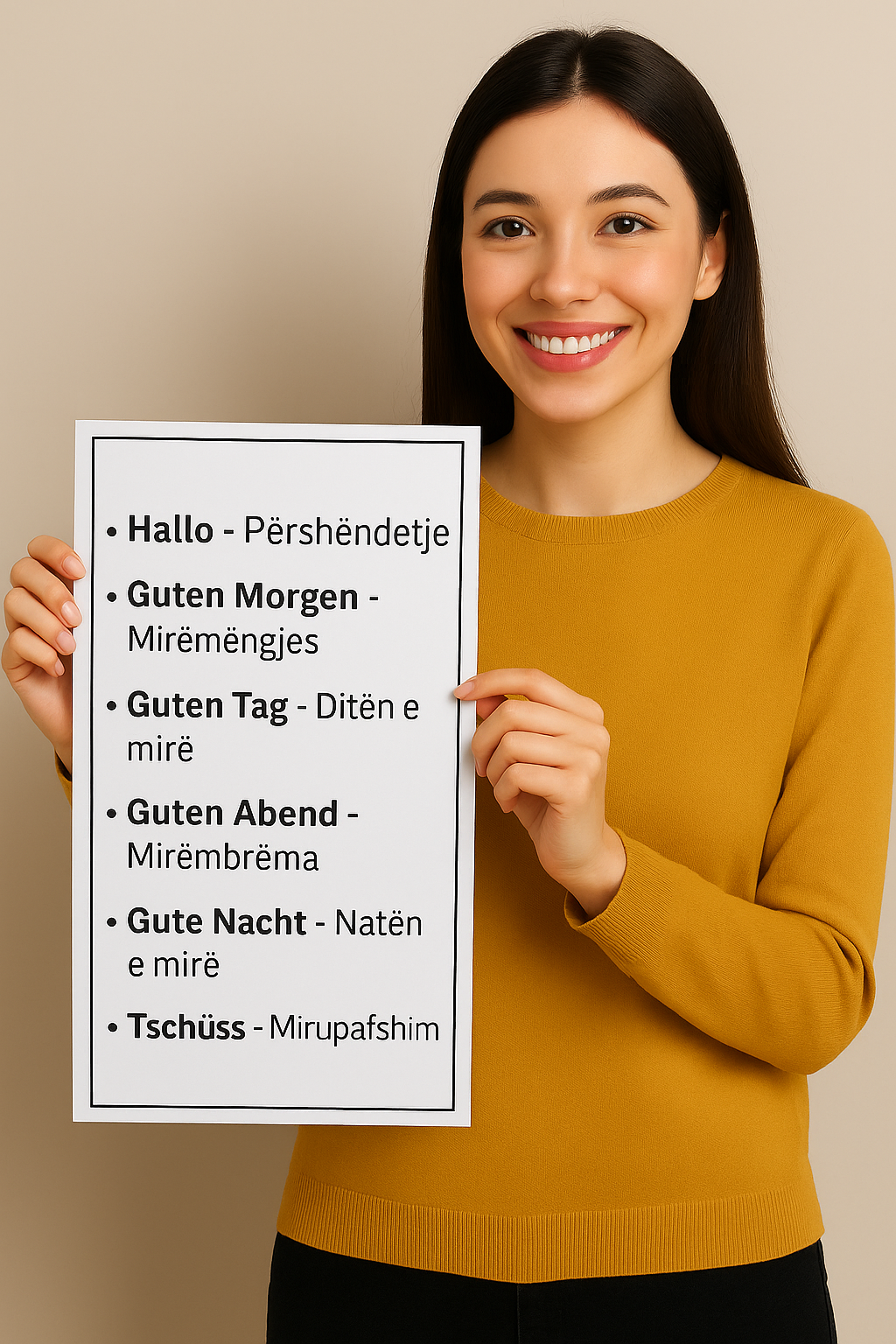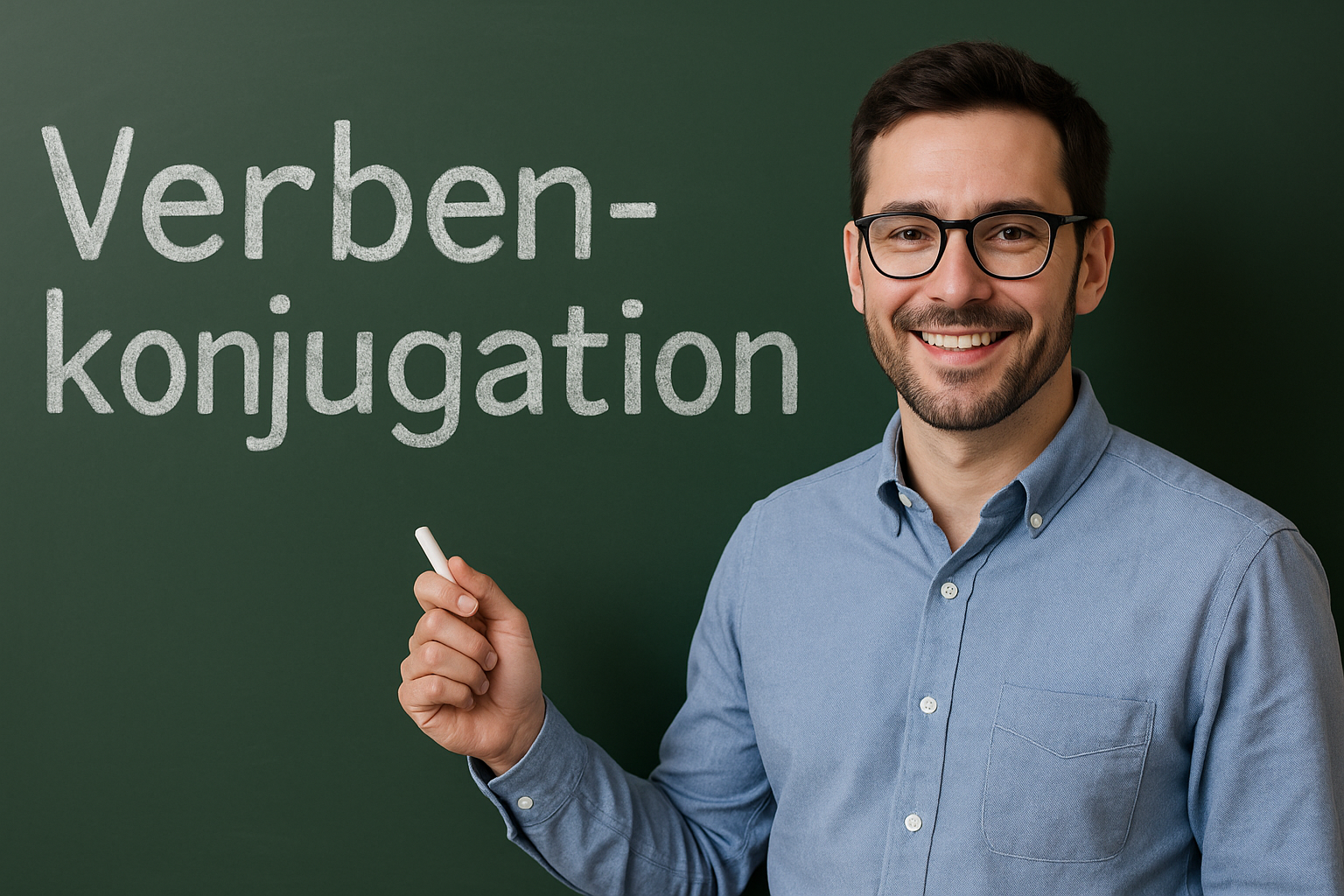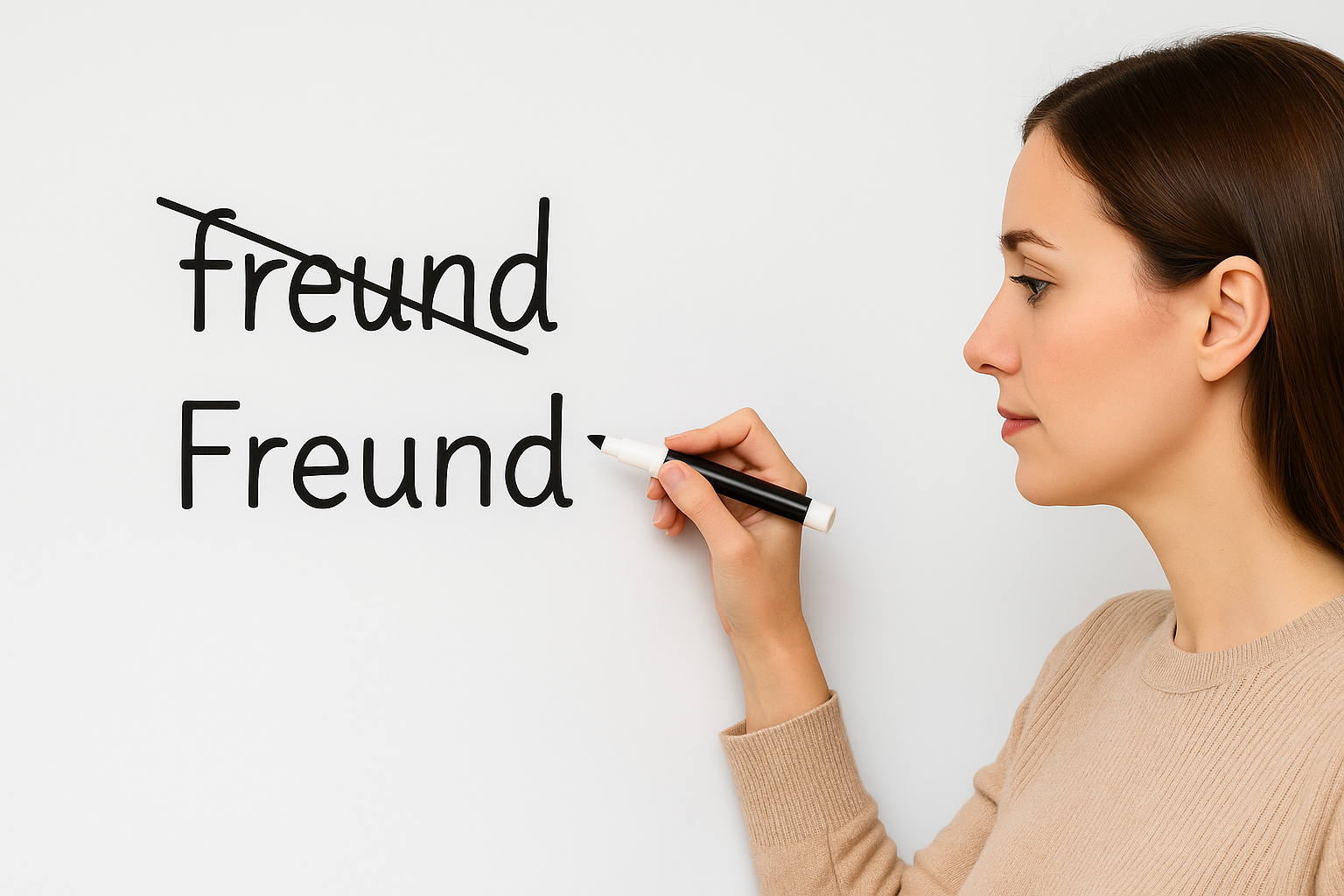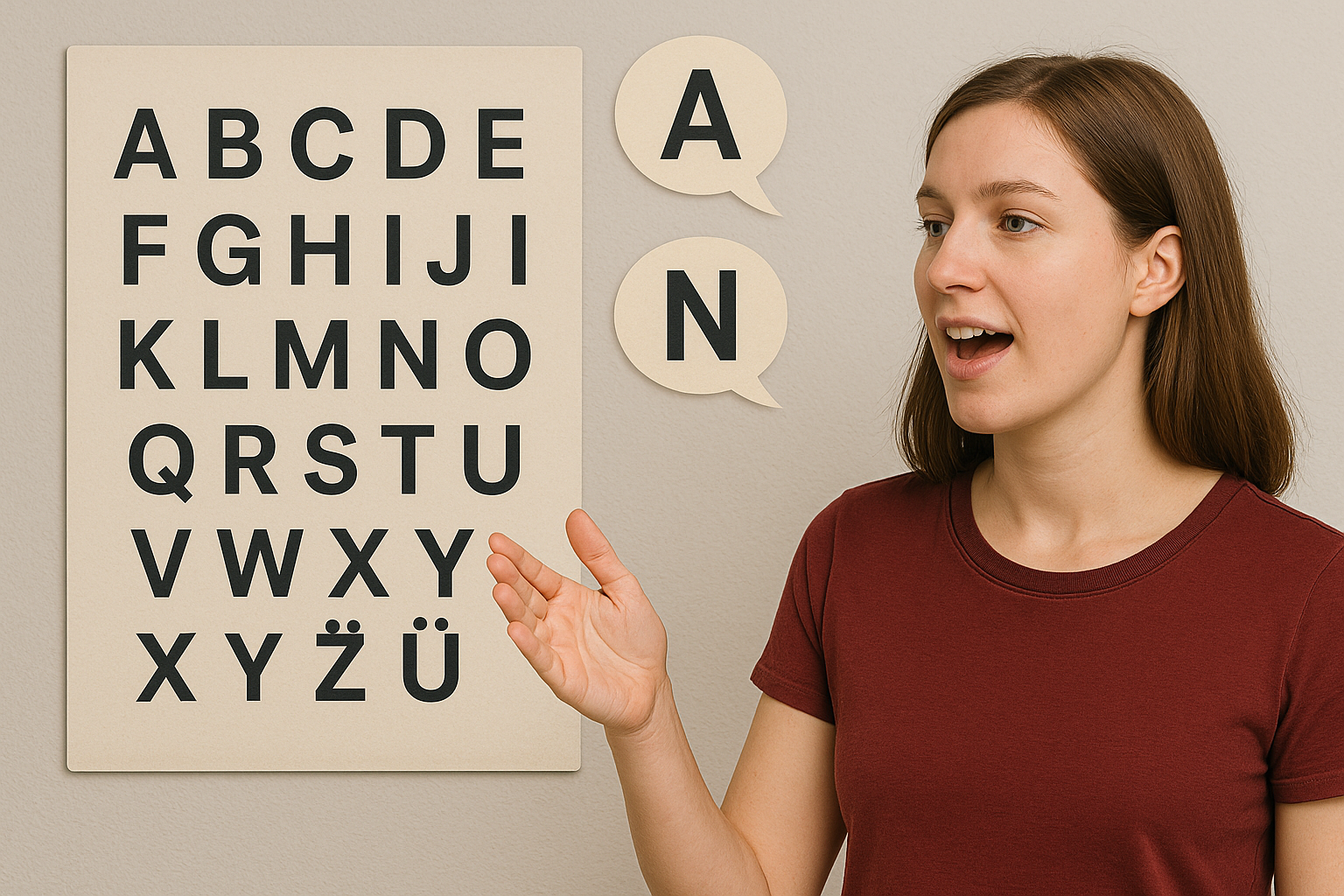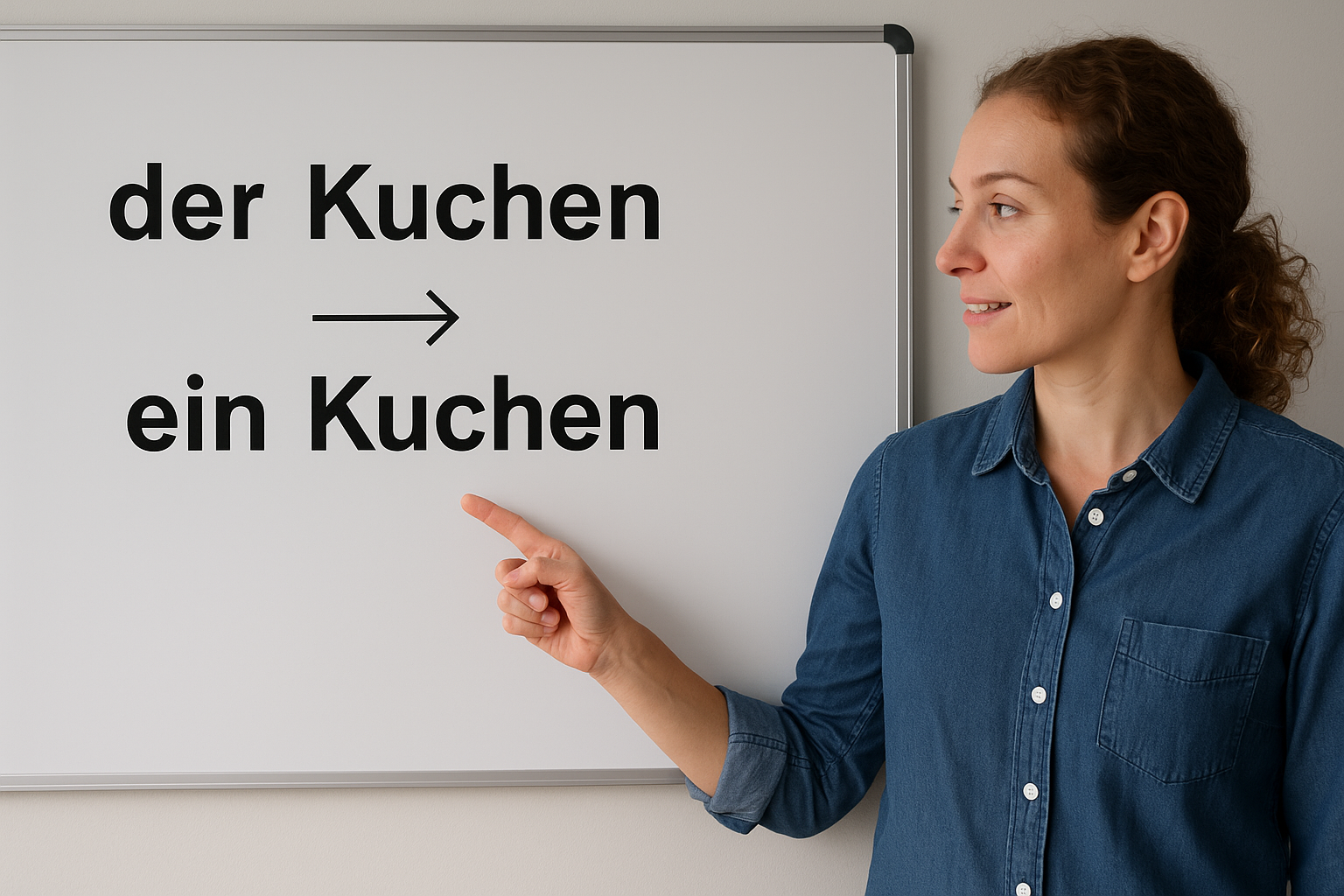📘 Introduction to this lesson we will learn the basic words related to family members in German. Kjo është një nga temat themelore të nivelit A1, After helping us introduce our family and understand family relationships …
part 1: Language (THE LANGUAGE) 💡 How to say “I speak…” in German? In German, to express which language we speak, use the verb Sprechen (with the meaning of meaning “to speak”). The most common form is: – I speak… → …
For level A1.1 - How to Ask Questions in German with Calcitories ❓ What is a Questioner Pronoun? Question pronouns are words that are used to form questions and are usually placed at the beginning of the sentence. They are essential in …
📌 For level A1.1 - How to introduce yourself and others 👋 Greeting and presentation Hallo! My name is Anna. – Tung! I'm namely anna. Good day! I am Markus. - Good afternoon! I'm Markus. 📌 sheet “be called” (MY NAME) …
📌 For level A1.1 - How to use nationalities and states without nodes 👤 Structure of sentences of nationality when we say 'I am Albanian', not use 'aus', But the form of the national surname: I am… + Nationality Table of nationalities: …
📌 Për nivelin A1.1 – Si të flasësh për vendin e prejardhjes 🌍 Pyetja themelore: WO + Her = ki ki? Where do you come from? – Well also jemsy? (informal) Where are you from? - Where do you come? (formal) …
📌 Hello and presentations in German - the first steps in daily communication 🙋♂️ Ordinary Hallo Hello! - Hello! (informal) Good morning! - Good morning! (up to 11:00) Good day! - Good afternoon! (Lives 11:00 UP 18:00) …
Choosing verbs in German: 🔹 Why is the choice important? In German, The verb varies according to the self and the number. This means that each itself has its own form of verb. This is essential to build sentences …
👉 “In this lesson we will learn the rules of German spelling that every beginner must know. 📝Why is the spelling important? Correct spelling helps the sentence to be clear and understandable. In German, errors …
The German alphabet has 26 Fonts, the same as English, But there are also some special sounds that must be carefully learned about the correct pronunciation of words in German. Ordinary letters: A – B – C – D – E …
📖 Das Perfekt –Koha e kryer ne gjermanisht Koha e kryer ne gjermanisht përdoret për të treguar veprime të kryera në të kaluarën. Often used in spoken German, While in written German used more präteritum. Perfekti formohet …
Foljet modale ne gjermanisht Modalverben Foljet modale (can, must, dürfen, want, should, mögen) shprehin mundësi, detyrim, leje, dëshirë ose këshillë. Ato përdoren zakonisht me një folje tjetër në pjesoren e thjeshtë në fund të fjalisë.Skema: Kryefjala + folja modale (e …
📖 Explaining content in German, Some verbs are irregular (irregular verbs), which means they change the root in different self during the choice. Here we will see 4 core: 1. Lesen - To read …
📖 Pyetjet me W dhe me PO JO ne gjermanisht Në gjermanisht ekzistojnë dy lloje kryesore pyetjesh: 1️⃣ W-Fragen (Pyetje me fjale pyetëse) – Get long and explanatory answers. – Start with a question word that usually starts …
Nyja e shquar e pashquar dhe nyja mohuese në rasën kallezore – ndryshimet dhe përdorimi Në gjermanisht, Akkusativ përdoret për kundrinorin e drejtë në fjali (what takes action). Nyjat e emrave ndryshojnë sipas gjinisë kur janë në këtë rasë. …
